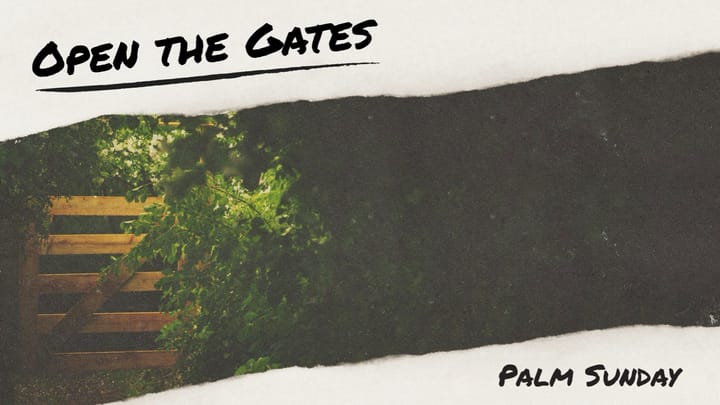Fairhaven Sermon 8-20-2023
Summary
In this sermon, the Pastor Dylan Parson discusses Jesus’ interaction with a Canaanite woman in the Gospel of Matthew. The pastor explains that Christians often view themselves as the “hero” or “main character” when reading Bible stories, but in this case, we are not the children of Israel – we are the outsiders, the “dogs” who Jesus initially rejects.
Pastor Dylan goes on to analyze how Jesus tests the Canaanite woman’s faith and humility by rejecting her request for healing at first. However, the woman persists in asking for mercy, arguing that even dogs get the crumbs from their master’s table. Jesus recognizes the sincerity of her faith and heals her daughter. The pastor argues we must humble ourselves like this woman, recognizing our unworthiness and total dependence on God’s grace. As adopted children, we cannot become arrogant and think we can decide who deserves God’s mercy. We must make room at the table for more of society’s outcasts, just as Jesus welcomed the Canaanite woman.
This summarizes the key points about not assuming we are the hero in Bible stories, demonstrating humble faith like the Canaanite woman, and avoiding arrogance about who deserves God’s grace. Let me know if you would like me to expand or modify the summary further.
Transcript
So who do you think you are? Who do you think you are? As we approach our gospel reading this morning, the first thing you need to know is Jesus is talking to you and maybe in a way that will make you uncomfortable. This story has something to say to you. A friend of mine pointed out that when reading scripture, Christians often have a terrible case of what kids these days call main character syndrome. I don’t know how many of you are familiar with that phrase.
But main character syndrome is this– the situation where we often unknowingly view ourselves as the center of the world. Whatever the plot line of the story is, it’s about us, really. We’re simply the main character, you know? So reading the Bible too, it’s about us, right? And we are by implication, because this is what the main character always is, the hero, or at least on the right team. Not so in this case.
And frankly, most of the time in scripture, if we’re reading it thinking that we’re the good guy in whatever story we’re reading, we’re probably making a mistake. We American Christians much more closely resemble, say, the Egyptians than the enslaved Hebrews in Exodus. Their situation is much more similar to ours than the Hebrew slaves in Egypt. In the New Testament, on the other hand, we’re much more like the Romans or other pagans than like the Jewish minority, let alone the brave little Christian sect threatened with persecution for our faithful living.
That’s not a reality we live in. We’re not going to be crucified, we’re not going to be fed to lions, we’re not going to be pressed out of polite society for our faith. So when Jesus looks at the Canaanite woman in the eye and calls her and her demon stricken daughter dogs who do not deserve to eat the food that belongs to the children, we have to understand that we in this situation are the dogs. We’re not the children, we are the dogs.
And dogs in Israel at this time were not like dogs today. And if we’re shocked by Jesus’s sharpness here, we shouldn’t be embarrassed that Jesus is talking like this to other people, right? But chastened by the fact that Jesus is talking like this to us, reminding us of our place in the story of salvation. This woman, who you should know is not an oppressed foreigner. It’s not like she’s existing on the bottom of society there, but she’s a member of a people who throughout Jewish history and continuing through Roman times has long oppressed the Jews.
Like she’s a more powerful person than Jesus is. She has come to beg for help from a Jewish rabbi. And that’s a really bold move. It comes at him, she comes at him hard.
She’s certainly not a Jew and yet she addresses Jesus by the title that his followers give him. She’s speaking the language of faith that’s not even hers. And she says, Show me mercy, son of David. And first he ignores her, but then when she keeps it up, she just keeps yelling after him.
She keeps following him as he’s going down the street. Jesus snaps back at her, essentially saying, You’re not my problem. I don’t owe you anything. And he’s absolutely right.
As we go through scripture, the vast majority of all the prophetic promises about the Messiah that we see from, oh, geez, from Abraham all the way through David, all the way up through the later books of the Old Testament. All of those promises are that the Messiah is going to come for Israel’s salvation, Israel’s redemption. This woman’s a Canaanite. Jesus is not coming for her.
The Jews are awaiting the fulfillment of promises God has made them since Abraham and Isaac, which we’ve been talking about in my past sermons for the past month or so, and later to King David. And Gentiles are at best an afterthought. You don’t see a lot of Gentiles in the Old Testament in any kind of positive light. And instead, they’re more frequently an outright obstacle to what God wants to do.
They’re an obstacle to the restoration of God’s chosen people. So whenever we come around to Easter once more, when we get to Palm Sunday and Jesus rides in on the donkey to Jerusalem, his followers expect him to go take the throne that belongs to him as the son of David. And they’re disappointed when that’s not what happens because that’s what they’re expecting, that God is going to restore his people to their rightful place. But the Gentile woman keeps following Jesus.
She keeps yelling after him. She keeps going, refusing to just leave him alone to continue his journey, and even calls him stunningly Lord. The same thing his apostles call him. And finally, he stops and he engages with her.
And it’s still not polite. He says, It’s not good to take the children’s bread and toss it to the dogs. That is, he’s saying something like, You know what, I’ve got my own people to save. Go get your own Messiah.
But her desperate love for her daughter is too strong for her to let it go. She keeps pushing him, and she argues with him, which is something that we see a lot of the Old Testament heroes do. Abraham argues with God whenever he wants to help somebody else. And she says, Yes, Lord, but even the dogs eat the crumbs that fall off their master’s table.
She lays her deep need out before him, not with any sense of entitlement to his grace, not like this belongs to me, but in complete humility and knowing that he can do something about it. And there’s something else there too, because she insists by implication that there’s a place for dogs in the household of God too, sharing the same father as their master. They still get to live in the house. And Jesus has stopped in his tracks as she pushes back on him, as she presents us in a different kind of way.
And you imagine he must have been smiling. And he says, Woman, you have great faith. It will be just as you wish. And right then her daughter is healed.
The demons are cast out without him even having to touch her or pray over her or anything, the demons are cast out and she’s free. And it’s a really beautiful moment. And it’s not that she changes Jesus’s mind or something about who God loves or who Jesus has come to save. She just proves that she really gets it.
Her nothing held back, prideless humility is the same way that we as Gentiles, who are not originally God’s chosen people, are included and welcomed, grafted into the promises that God made thousands of years ago to God’s chosen people. Whenever we beg for grace, God gives it to us. And Matthew throughout this section of his gospel is hammering home this idea of humility before God’s unearned grace. The position of the previous portion of the chapter, the part we started with, this run-in with the Pharisees is no coincidence.
You know, whenever you see two stories back to back in scripture, they’re usually there for a reason and not just that they happened in a row. So our reading today opens with Jesus speaking to a crowd. Some background is that the Pharisees insist on all kinds of rituals and purity beyond what the law of Moses says. Specifically, what they’re talking about is ritual hand washing.
To be clean before you ate, you had to wash your hands, but not like with soap and water. That is good. Jesus is not saying not to do that. Jesus is saying that you don’t have to be ritually clean before you eat.
And Jesus argues, no. You’re adding all of these rules about purity, all of these things that you have to do to keep yourself clean, but what you eat doesn’t contaminate you. It’s not that you eat something that’s not kosher or eat something that’s unclean that harms your soul. It’s the other way around.
What comes out of the mouth makes you unclean. We can’t obey our way into holiness, Jesus says. Instead, it has to come from the inside out. You don’t keep yourself holy by following all the rules of what you’re allowed to eat and touch and where you’re allowed to go and who you’re allowed to talk to.
It starts in the heart. And the position of our heart affects everything else about how we live. And the Pharisees, this kind of flips up the whole chessboard of all their moral teaching. And they’re furious.
And as apostles say, you know, the Pharisees are very, very upset with what you’re saying. And Jesus, as he often does, just pushes further and he explains himself to the apostles why he’s saying what he’s saying. Don’t you understand yet, he says. Don’t you know that everything that goes into the mouth enters the stomach and goes out into the sewer? But what goes out of the mouth comes from the heart.
And that’s what contaminates a person in God’s sight. Out of the heart comes evil thoughts, murders, adultery, sexual sins, thefts, false testimonies, and insults, these contaminate a person in God’s sight. But eating without washing hands doesn’t contaminate in God’s sight. And Jesus is purposely being kind of crude here.
He’s saying, what you eat is literally gonna come back out again and be flushed away. He’s being very dismissive, very crude about the whole thing. But the words that you say, the actions that you take that start with the thoughts of your heart, Those are the things that matters. The heart steers it all, and that’s what God is looking at.
Those are the things that are eternal. Those are the things that God cares about. And so notice, as soon as Jesus finishes explaining this, as soon as he finishes explaining what real holiness, real faithfulness is, that’s when he decides to go to Tyre and Sidon in the northern land of Canaan. This is also Lebanon, Syria, Phoenicia.
he’s going up north to a land where it’s not Jewish anymore, it’s Canaanite, and he’s acting out exactly what he’s just taught. I think that’s why he goes. He sets himself in this sea of completely impure people. It’s like the parable of the Good Samaritan.
You know, half the point of the Good Samaritan is that Jews and Samaritans are not supposed to interact the same way Jews and Canaanites are not supposed to interact. Jewish men are not supposed to to interact with Jewish women in public. There’s these strong barriers between where you’re supposed to be and where you’re not. You’re keeping yourself clean.
So imagine the scandal if Jesus is God going to Canaan in the flesh. Not only is this isn’t some great prophet disobeying the rules, going to a place where Jews aren’t supposed to go. This is God saying, No, I am going to Canaan. So some biblical scholars argue about whether Jesus is purposely going to the Canaanite village, or if it’s just a necessary path on his way elsewhere.
But I think given this context, immediately after he confronts the Pharisees about holiness, I think he’s doing this completely on purpose. He wants exactly what happens in this story to happen. He’s trying to get an interaction like this. He wants exactly the kind of meeting he has with this Canaanite woman.
And so he meets this woman who is first of all a woman and is deeply impure to his people and tradition. He shouldn’t be talking to her as a woman at all. He shouldn’t be in Canaan. He shouldn’t be talking to Canaanite people and they certainly shouldn’t be asking him for anything.
And he gives her away into the household of God. And in this story, we see that God’s come not only to drive out the Gentile oppressors of his people, but to drive out the demons that are oppressing the Gentiles. If we want it. The condition of the heart determines what’s holy and what’s defiling.
And it turns out that this woman’s heart is in a posture of holiness. She is welcoming the Lord in and telling the demons to go. She’s operating completely out of this love for her daughter. She’s tracking Jesus down, not for any selfish reasons, not because she’s trying to be a faithful Jew or something like that, trying to follow the rules, but because she wants to heal her daughter.
Her heritage, her purity, wherever she’s been, whoever she’s been, are irrelevant, and her deep love and her humility as someone who’s really far higher in standing than Jesus makes her able to receive his grace. She humbles herself, and then she brings that grace back to her people. And she demonstrates the power of God to a people who don’t know God. They’re not expecting a Messiah because he’s not their God.
And the dogs are welcomed into their master’s household. And Jesus is ready to open the door to as many rescues as need a home. There are enough crumbs under the table for everybody. We already saw that at the feeding of the 5,000.
There’s always enough crumbs. But there’s something else here too. Again, we’re adopted and rescued once not a people, but now God’s people because of God’s grace. There’s a real facet here that this is totally unearned.
But now we’re in the house, right? I mean, this is our church, you know, this is our God, this is our Lord, and that main character syndrome can kick in again. And we start to feel like we own the house that Jesus lets us live in. Or that we get to decide who gets a seat at the table whenever we’re here to eat the crumbs. We get to decide who really gets the crumbs.
Those belong to us. We have some authority over where they go. And we start to feel, as many dogs do, like we have the right to decide who comes in the front door. God knows that my dogs think that that is their choice.
And so we need a reality check. We have to keep in mind the level of hubris and arrogance it takes for us as dogs, guests ourselves in the house, right, to decide who deserves God’s grace and who doesn’t. If we’re ever tempted to write anybody off for reasons of, well, anything, but class or immigration status, sexuality, whatever, Jesus’ rebuke of the Pharisees applies to us too. You are not here because you did anything special.
You’re not here because you earned it. You are here because Jesus let you in. inviting you to open your heart and be saved, to feed on the crumbs that were originally given to another people entirely. You’re not the children the bread is for, you’re the dogs.
And I have to think that the apostles were repulsed by a Canaanite woman calling Jesus Lord or Son of David. That would have had to bother them a lot. Like, who are you? And then I think about how many Christians feel, In many traditions, hearing a woman preach, how you might hear a gay person proclaiming the word of God, or that some church is helping immigrants or refugees or convicts or addicts. Who do these people think they are? Using the name of God, daring to talk about Jesus, using his name to talk about these people that we’d rather not associate with.
And Jesus in this story, throws it back in our face. Who do you think you are? You think this is your house? You think this is your bread, your crumbs? And so we pray with the Canaanite woman, show us mercy, son of David. Lord, help us. Even the dogs eat the crumbs that fall off their master’s table.
Set us free from the demons that bind us and help us always to scoot over and make room for more strays under the table. Thanks be to God in the name of the Father and the Son and the Holy Spirit. Amen. [BLANK_AUDIO].


